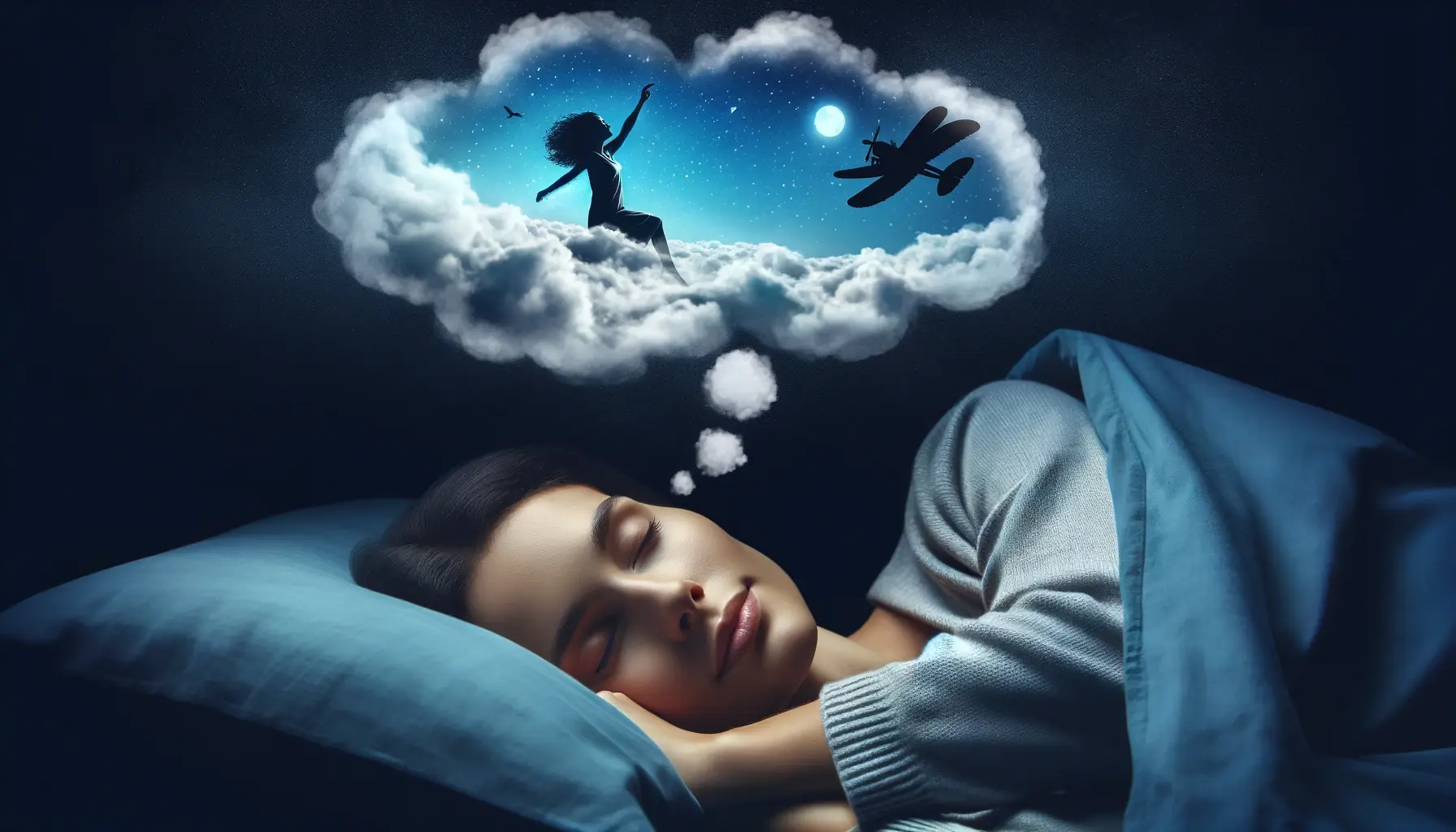.png)
Dreams Anxiety: Does Anxiety Cause Weird Dreams?

2 Minutes Psychology
Sep 10, 2025
Dreams about unplanned trips:
Case Report:
The patient, identified as XYZ, is an 18-year-old boy who presented at the clinic. XYZ appeared to be averagely dressed but exhibited signs of sleep deprivation, such as dark circles under the eyes, rough hair, and a pale complexion. The patient also displayed mental fatigue and a preoccupied demeanor. Upon further inquiry, XYZ reported having trouble with sleep, including frequent awakenings during the night and a persistent feeling of tiredness, even after a full night's sleep. He has outlined disturbances in his social and educational life. Due to his disturbed sleep, he is experiencing irritation at its peak, which has led him to show persistent anger and unintentionally he is becoming habitual of aggressive talk.
XYZ shared that anxiety played a significant role in his daily life. Specifically, the patient reported feeling anxious about future-related tasks, even those that were not immediately relevant. XYZ's mind often became preoccupied with unplanned scenarios and worries that extended beyond immediate concerns.
Facts about un-planned Trip Dreams:
Human existence is a complex phenomenon characterized by a multitude of experiences. Throughout the day, individuals encounter various situations and face diverse challenges that leave lasting impressions on their conscious and unconscious minds. As individuals retire for sleep, they carry an average of 12,000 to 60,000 thoughts accumulated from their waking hours. Remarkably, research indicates that approximately 80% of these thoughts lean toward negativity. Pre-sleep thoughts have been found to significantly influence dream content, with negative thoughts often translating into bad dreams.
The Unique Nature of Dreams:
Dreams are highly personal experiences, influenced by an individual's unique background, experiences, and associations. Therefore, the meaning and interpretation of dreams can vary widely among individuals. In the case of unplanned trip dreams, they may symbolize a fear of the unknown. These dreams often manifest when individuals are about to embark on new journeys, such as starting a new job, relocating to a different city or country, or entering a new relationship. The appearance of such dreams may reflect anxiety concerning the unknown and the individual's perceived level of preparedness to navigate unfamiliar situations.
Fear and Anxiety of Being Unprepared:
Dreams featuring unplanned trips, events, or tasks may serve as indicators of an underlying fear and anxiety surrounding the feeling of being unprepared. Individuals burden themselves with excessive thoughts related to future responsibilities and assignments, often perceiving themselves as overwhelmed by the demands that lie ahead. This preoccupation with unpreparedness can manifest in dreams and impact the individual's overall well-being.
Understanding Anxiety:
Anxiety manifests in various forms and often goes unnoticed in its early stages. Individuals experiencing anxiety frequently report persistent and intense worry, despite their efforts to control it. Over time, anxiety can manifest in physical symptoms such as sleep disturbances, irritability, headaches, rapid breathing, muscle tension, and gastrointestinal issues like stomachaches or nausea.
Evaluating Anxiety Dreams:
It is essential to differentiate between normal anxiety experienced before embarking on a new task, which may be accompanied by increased heart rate and sweating, and persistent anxiety that interferes with daily life, including sleep. When recurring dreams involving unplanned events or trips occur frequently, it may indicate a more significant underlying anxiety concern.
The Cycle of Anxiety Dreams, and Daily Life:
Anxiety-inducing events or scenarios can become deeply ingrained in the unconscious mind, thereby influencing dream content and manifesting as unplanned trips or events during sleep. Consequently, these dreams contribute to the physical and psychological symptoms associated with anxiety. However, the impact of anxiety does not end with sleep. Anxiety dreams and disrupted sleep can have lingering effects on an individual's day. They may wake up feeling anxious, fatigued, and on edge, which can affect their overall mood, energy levels, and productivity throughout the day. This can further perpetuate the cycle of anxiety and negatively impact various aspects of their daily life. A bad thought can ruin the whole day and for anxiety person a bad day can affect their major goals and important life events.
Amazing Facts about Anxiety and Dreams:
- Anxiety affects approximately 284 million people worldwide, making it one of the most prevalent mental health disorders.
- Dreams occur during the rapid eye movement (REM) stage of sleep and can last from a few minutes to half an hour.
- The brain's emotional centers, such as the amygdala, are highly active during dreaming, which contributes to the intensity of emotional experiences in dreams.
- Anxiety can heighten dream recall, making individuals more likely to remember their dreams upon waking.
- Dreams involving negative emotions, such as fear or anxiety, are more common than positive dreams.
- Bad dreams and nightmares can trigger a stress response, leading to increased heart rate, sweating, and feelings of fear or discomfort upon awakening.
- Chronic anxiety can disrupt the sleep cycle, leading to difficulty falling asleep, frequent awakenings during the night, and non-restorative sleep.
- Addressing anxiety and improving sleep quality can lead to a reduction in anxiety symptoms and a decrease in the frequency of bad dreams.
Overcoming Anxiety: Addressing anxiety requires a comprehensive approach that incorporates various strategies and interventions:
Seek professional help: Consulting with a mental health professional, such as a therapist or counselor, can provide valuable insights and effective strategies for managing anxiety. Therapy sessions can offer guidance and support in understanding and overcoming anxiety-related issues.
Cognitive-behavioral therapy (CBT): This therapeutic approach focuses on identifying and modifying negative thought patterns and behaviors associated with anxiety. CBT equips individuals with practical coping mechanisms to alleviate anxiety symptoms and promote positive mental well-being.
Relaxation techniques: Engaging in relaxation practices like deep breathing exercises, meditation, and mindfulness can help reduce anxiety levels and promote a sense of calmness. These techniques can be practiced regularly, even before sleep, to enhance relaxation and improve sleep quality.
Healthy lifestyle habits: Prioritizing sleep hygiene, engaging in regular physical exercise, and maintaining a balanced diet contribute to overall well-being and can alleviate anxiety symptoms. Adequate rest, regular exercise, and a nutritious diet support mental and physical health, enhancing the body's ability to cope with anxiety.
Establish a support system: Surrounding oneself with a supportive network of friends, family, or support groups provides emotional support, understanding, and guidance during challenging times. Sharing concerns and experiences with trusted individuals can alleviate anxiety and foster a sense of connection and support. “Let’s Meet” offer you to be part of a chat support system. Where you can meet people who can help you to fight your anxiety and anxious thoughts. This chat support system offers you a complete anonymous counseling system.
Conclusion:
XYZ's case exemplifies the significant impact of anxiety on sleep patterns, dream content, and daily life. The occurrence of dreams about unplanned trips and events reflects the underlying anxiety and fear of being unprepared. By employing a comprehensive approach that includes therapy, relaxation techniques, healthy lifestyle habits, and a strong support system, individuals can effectively manage anxiety, improve sleep quality, and enhance their overall well-being. Addressing anxiety is crucial for individuals to break the cycle of negative thoughts and emotions, ultimately promoting a more balanced and fulfilling life. Furthermore, understanding the fascinating facts about anxiety and dreams highlights the complex interplay between these phenomena and emphasizes the importance of addressing anxiety to improve sleep and overall functioning. Things that appear in our dreams must have a significant reason if they are appearing in our dreams consistently and are causing significant effects on social, educational, and occupational life then this is something alarming. For this 2 Minutes Psychology offers you a chat support system where you can meet people and anonymously share your thoughts, fear, and issues. Proper and timely treatment is a must thing to cure the issue timely.
For Free Registration of Chat Support System "Let's Meet"
Community
Share your experience
Let's Meet 2 Minutes Psychology
Aug 28
Remember
Let's Meet 2 Minutes Psychology
Aug 28
Cognitive Behavioral Therapy (CBT) and anxiety coping skills
Let's Meet 2 Minutes Psychology
Aug 28
Anxiety coping skills for teens
Let's Meet 2 Minutes Psychology
Aug 28
Grounding techniques
Let's Meet 2 Minutes Psychology
Aug 28
.png)

